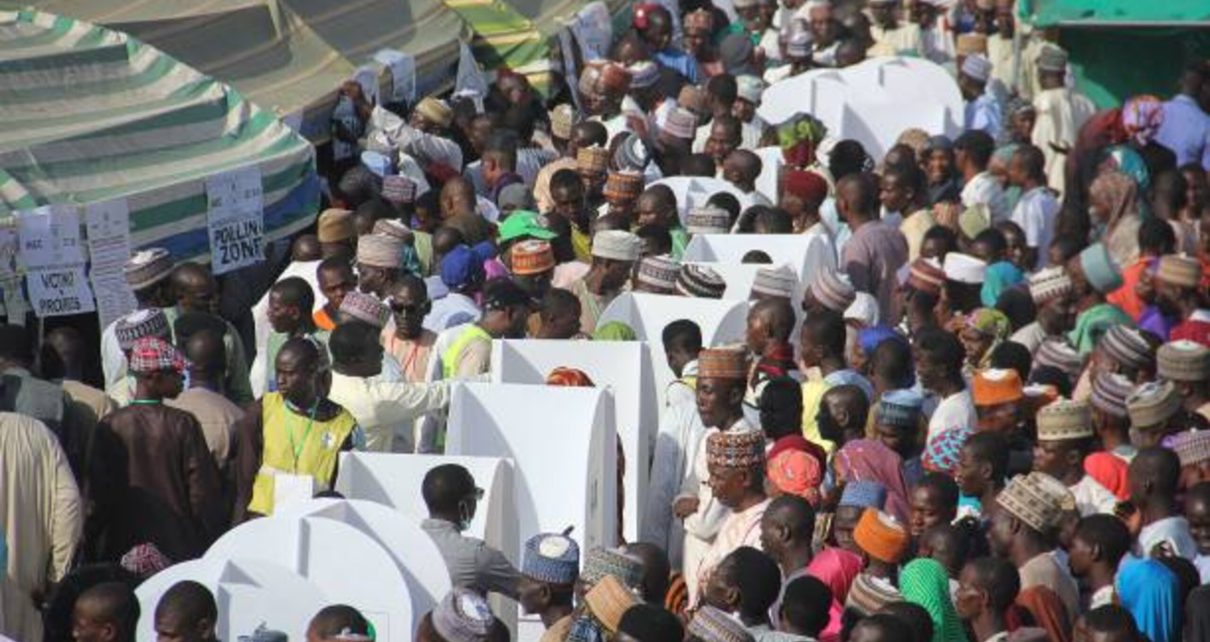By Nkanu Egbe
Nigeria’s political landscape in 2025 is marked by growing tensions and concerns over democratic decline. The ruling All Progressives Congress (APC) continues to consolidate power, with high-profile defections from opposition parties sparking fears of a drift toward a one-party state. This trend raises alarms about the erosion of checks and balances vital to a healthy democracy.
A central issue undermining Nigeria’s political development is the lack of a cohesive value system. Corruption and nepotism are deeply entrenched, fostering a culture where personal ambition often overrides public service. As political analyst Charles Onunaiju, writing for Daily Trust, aptly puts it, political power in Nigeria is seen as a privilege rather than a responsibility for strategic governance.
This value erosion is visible in policymaking and political realignments. The Petroleum Industry Act (PIA), intended to reform the oil sector, was stymied by favoritism and political interference. Similarly, former Delta State governor and PDP vice-presidential candidate Dr. Ifeanyi Okowa’s defection to the APC, which he framed as a “patriotic” move to access federal support for Delta State, has been criticized as potentially self-serving—especially given ongoing corruption allegations against him. Such actions reinforce perceptions of opportunism rather than public service.
This breakdown of ethical leadership deepens public distrust and normalizes a system where loyalty to power supersedes accountability to citizens. Meaningful reform must prioritize ethical governance, strengthen institutions, and reinstate a culture of service over self-interest.
Nigeria’s fragile political institutions further compound its democratic challenges. Frequent defections—often driven by personal ambition rather than ideology—undermine party integrity and reduce political platforms to election vehicles rather than instruments for good governance. The increasing dominance of the APC threatens political diversity, raising concerns about Nigeria inching toward a one-party state.
Institutions designed to uphold democracy, such as the National Assembly, judiciary, and the Independent National Electoral Commission (INEC), are frequently criticised for lacking independence and effectiveness. The presidency has been accused of using state resources to entice opposition politicians to switch allegiance, weakening democratic competition and oversight.
The Nigerian Political Science Association has warned that this centralisation of power risks dismantling democratic norms. Reforms must focus on enforcing anti-defection laws, promoting internal party democracy, and ensuring the autonomy of electoral and oversight bodies. Without these measures, Nigeria’s democratic institutions will remain vulnerable to manipulation and decline.
At the heart of Nigeria’s democratic malaise is a leadership vacuum. Many elected officials lack the training, vision, or commitment to govern effectively. This inexperience leads to poor policy formulation and implementation, as demonstrated by the flawed rollout of the PIA.
Leadership failure goes beyond poor execution—it undermines public confidence. Citizens increasingly view their leaders as self-serving, reinforcing cynicism toward the political system. Dr. Hakeem Baba-Ahmed, a former political adviser, recently warned that Nigeria “cannot survive under present leadership,” underscoring widespread dissatisfaction.
To restore credibility and improve governance, Nigeria must invest in leadership development. Programmes like the Responsible, Ethical, and Accountable Leadership (REAL) Mentorship Programme offer a model, equipping aspiring leaders with strategic thinking and ethical decision-making skills. Expanding such initiatives nationwide can foster a new generation of competent, service-oriented politicians.
Nigeria’s journey toward true democracy depends on structural and cultural reforms. Strengthening democratic institutions is critical. Oversight bodies like INEC and the judiciary must operate free from political interference, with legal and constitutional safeguards to protect their independence. Transparent, accountable institutions are key to dismantling the patronage system and reestablishing public trust.
Accountability is another cornerstone. Clear mechanisms must be in place to hold public officials and institutions responsible. Initiatives like BudgIT, which monitors public spending and budget implementation, have shown the power of civic engagement in enforcing accountability. Legislative and policy reforms should support whistleblower protections, transparency mandates, and penalties for corruption.
Addressing the leadership gap requires a long-term investment in governance training and mentorship. Nigeria must create and scale leadership programmes that emphasise service, ethics, and competence. As one mentor put it, “True leadership is measured not by personal accolades, but by the tangible betterment of society.”
However, reform cannot succeed without an engaged and informed citizenry. Civil society, independent media, and grassroots organisations play a vital role in pressuring leaders and shaping public discourse. Educating citizens on their rights and the responsibilities of elected officials strengthens democratic participation. Civic tools—town halls, public forums, digital activism—can hold leaders accountable and foster policy responsiveness.
Nigeria stands at a pivotal crossroads. With a median age of 17, the youth form the largest demographic—and potentially the most volatile. Their rising disillusionment, if left unaddressed, may manifest in protests or revolutionary movements. Marginalising this group risks long-term instability.
To avert such outcomes, leaders must engage young Nigerians meaningfully by creating opportunities for political participation, empowering them through education and employment, and making space for their voices in policymaking. Ethical leadership must prioritise youth development, not merely as a talking point, but as a national strategy.
The challenges confronting Nigerian democracy are serious but not insurmountable. Addressing value erosion, institutional fragility, and leadership failure requires a coordinated, inclusive approach. Citizens, civil society, and reform-minded leaders must work together to build a transparent, accountable, and participatory political culture.
The stakes are high. If Nigeria fails to act, it risks losing an entire generation’s trust—and possibly its future stability. But with concerted reform, ethical governance, and a mobilised electorate, the nation can transform its political landscape. The time to act is now. The alternative is a future marked by deepening unrest, disillusionment, and democratic decay.
- Nkanu Egbe is Publisher/Editor, Lagos Metropolitan newspaper


